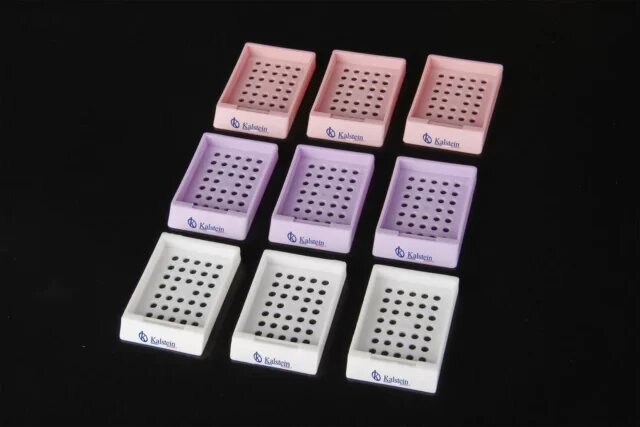A laboratory is a highly specialized environment for conducting scientific tests and experiments. For reliable results, good preparation and selection of laboratory reagents are required. These reagents are the basis for experiments performed in the laboratory, since they have the ability to react with each other and produce the expected results. Therefore, effective selection of each laboratory reagent is essential to obtain accurate results.
Proper selection of laboratory reagents can be complicated, so it is important to fully understand the concepts associated with their uses. Firstly, laboratory reagents are divided into three categories – organic, inorganic and synthetic reagents. Each one of them is used in different experiments to get specific results. Organic reagents are composed of molecules of carbon atoms.
These are the most common in most laboratory tests, as there are a wide variety of organic components that can react with each other in different experiments. Inorganic reagents, on the other hand, are those that have components that lack carbon. These reagents are mainly used in research and are produced in large quantities. Finally, synthetic reagents are chemicals designed and manufactured in the laboratory. These are usually used to create new tools and products for research.
What are the precautions to be taken with laboratory reagents?
In addition to a clear understanding of the different types of laboratory reagents, it is important to take into account some precautions to improve safety and obtain consistent results. Some common precautions include proper use of safety materials, such as gloves and safety glasses, temperature control, and proper handling of reagents. Because laboratory experiments often contain dangerous chemicals, it is important to follow proper instructions to avoid potentially costly and health-related errors.
Good testing protocols are also essential to establish affordable and accurate procedures for consistent results. This involves keeping all test data clear and organized to facilitate review and further analysis. Laboratory reagents should be stored under optimal conditions to ensure effectiveness. The name and exact amount of the reagent should be provided, together with the specific procedures and appropriate quantities for mixing it with other laboratory reagents. This will ensure consistent returns and accurate results.
Laboratory experiments need to optimize mixing processes to avoid problems such as premature wear or ineffective separation of reagents. The degree of mixing also depends on the objective of the test. For example, in a corrosion test, reagents must be thoroughly mixed, so that results are accurate. For purity tests, reagents can be mixed with less complexity. Proper selection of reagents is also important in the mixing process to ensure that they react correctly and produce the desired results.
The correct handling of reagents to ensure their effectiveness
In addition, laboratory reagents should be stored and handled appropriately to obtain reliable results. This involves storing the reagents in clean, dry containers in an isolated area of the laboratory, as well as handling them with asepsis before use. This ensures that the reagents remain effective and free from contamination by microorganisms. Finally, it is important to perform a screening test to check the results of the testing procedures.
This involves applying the exact same reagents, with the exact same amount used in the original test, in a separate test to verify that the results match. This helps identify errors in test procedures and allows you to correct them for correct results. In conclusion, the selection of appropriate laboratory reagents for experiments and procedures is very important. If the reagents are not properly selected, the results may be inaccurate or inaccurate.
Effective reagent selection involves basic knowledge about the different types of reagents and appropriate safety to obtain reliable results. Proper preparation of reagents, as well as proper calibration, are also essential to a successful test. By following these instructions, the laboratory experiments will be performed safely and the results will be accurate.
The efficacy of Kalstein laboratory reagents
Laboratory reagents, which are available for sale from the manufacturer Kalstein, are specially formulated to efficiently perform the analytical processes in which they are used. Many labs choose to purchase our products, as the most typical reactions of an analysis, such as urea, creatinine or electrolytes such as Ca and K, can be done reliably and quickly. The prices of our products and their technical information can be consulted at HERE and HERE.



